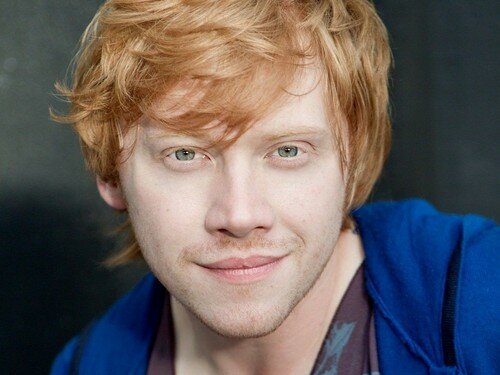
{Image via Fashionista514}
Superheroes are all the craze in Hollywood. In the last five years alone we’ve seen Spiderman, Batman, Superman, The Avengers, The Fantastic Four, Thor, The Green Lantern, even The Green Hornet rebooted and resurrected on the big screen. And just a couple of weeks ago, Ben Affleck was announced as the “new” Batman – just a year after the third installment of The Dark Knight was released in theaters. Even Agent Coulson of The Avengers fame — who was murdered in the feature film — has found a second life in a spinoff TV series called Agents of S.H.I.E.L.D., one of ABC’s new rollouts for this fall. Yes, we’ve been bitten by the comic bug, but there’s one symptom that doesn’t seem to be showing itself: where’s Wonder Woman?
In a time where audiences are flocking to superhero movies, why do the big box studios continue to ignore one of the most popular comic book heroes of all time? Wonder Woman is the only major female superhero that is in the top echelon of the comic book mythology with Batman, Spider Man, and Superman. Even I know that, despite my lack of in depth comic book knowledge. Even the great Joss Whedon – he of the Avengers and Buffy – tried in recent years to get a Wonder Woman movie in production but was shut down, and a Wonder Woman TV series was produced but never made it to the screen. A brief survey of entertainment websites produces a myriad of arguments for why a Wonder Woman movie hasn’t been made yet, or just isn’t possible: a complicated origin story, too much Greek mythology, a lack of clear villains or a definite plot arc, the list goes on.
I call BS.
Especially considering Hollywood typically picks and chooses what to include and ignore when crafting new superhero movies, including backstories. The Dark Knight trilogy, for example, created a radically different version of Batman compared to previous incarnations, and nobody batted an eyelash. Hollywood has made superhero movies with male characters as the lead superhero dozens of times over and never hesitated to resurrect the franchise because of financial or critical failure. The Spiderman franchise with Tobey Maguire was barely on the shelf when Andrew Garfield was announced as next actor to take over the franchise. What gives?
Major motion picture studios seem to be missing that making a movie with a strong female lead is no longer a risk. Sure, Catwoman in 2004 with Halle Berry may have been a box office flop, but so was 2011s the Green Lantern. 1997s Batman and Robin is continually excoriated as the worst Batman movie of all time, and how many Batman movies have there been since then?
Movies with a female lead character have proven that not only can they be a critical success and financial success, but they can span the genres. Bridesmaids, Zero Dark Thirty, and The Hunger Games to name a few have been major blockbuster hits for studios in the last two years. The Hunger Games arguably crosses over in the superhero territory, as well. Mainstream critical opinions like to say that when movies with a women leading cast fail, it’s because of the woman – audiences weren’t ready for it, having a woman in the lead wasn’t appealing to male moviegoers, etc. Graeme McMillan of Time Entertainment writes that “a Wonder Woman movie wouldn’t be seen as ‘just’ a movie about Wonder Woman, but a movie for all female superheroes, under both a microscope for hidden meanings and the sheer, crushing expectation of creating something that is, well, worth what’s now become a noticeable wait for a solo female superhero movie.”
I’d like to congratulate McMillan with a “thank you, Captain Obvious” in regards to this observation about what it means to be a stereotype. Continually in the media, characters from marginalized groups such as women and people of color are seen as representing their entire group rather than an individual experience. Roles that are supposed to portray a universal human story that “everyone” can relate to or that “transcends” race and gender are most often given to men. More specifically, white men.
Another popular argument against a Wonder Woman movie is that it’s somehow a woman’s interest film – a category referred to with the same derogatory connotation as chick lit, of course – that doesn’t have crossover appeal. Girls don’t like action movies, they don’t like superheroes, and they certainly don’t like comic books. Hello, Hollywood – did you know that over 50% of the online buzz about this year’s San Diego Comic Con came from women? Women are a viable presence in the comic book world and they don’t just go to the movies because their boyfriends want them to. On the flip side, it’s hard to imagine Wonder Woman being such a popular character if her fans were only female. Many men count themselves among the ranks of Wonder Woman fans; it’s so popular that you can, in fact, order a Wonder Woman cos-play costume made to fit a male body.
Ultimately, Hollywood’s reluctance to make a Wonder Woman movie isn’t because of the idiosyncrasies of Wonder Woman’s origins or her lack of compelling villains; it’s because studios are still too scared to embrace a franchise led by a woman in what many still stereotype as a male driven “nerd culture” in which women are not seen as active participants. It’s up to Hollywood to read the writing on the wall – and hopefully, make a movie that lives up to the rich comic book lore of a character like Wonder Woman.
Don’t make us get our magic lassos out.
By




What do you read on the airplane? | Emilia Lives Life
[…] article about Wonder Woman from Sweet Lemon made me think. I definitely don’t consider myself a superhero movie fan, […]
The financial proof (in one handy chart) that we need to do better for women in film | Sweet Lemon Media
[…] hear that, Hollywood Executives? Maybe now’s the time to start seriously thinking about that Wonder Woman movie instead of just putting her as a supporting character in the next Man of Steel. While it’s […]